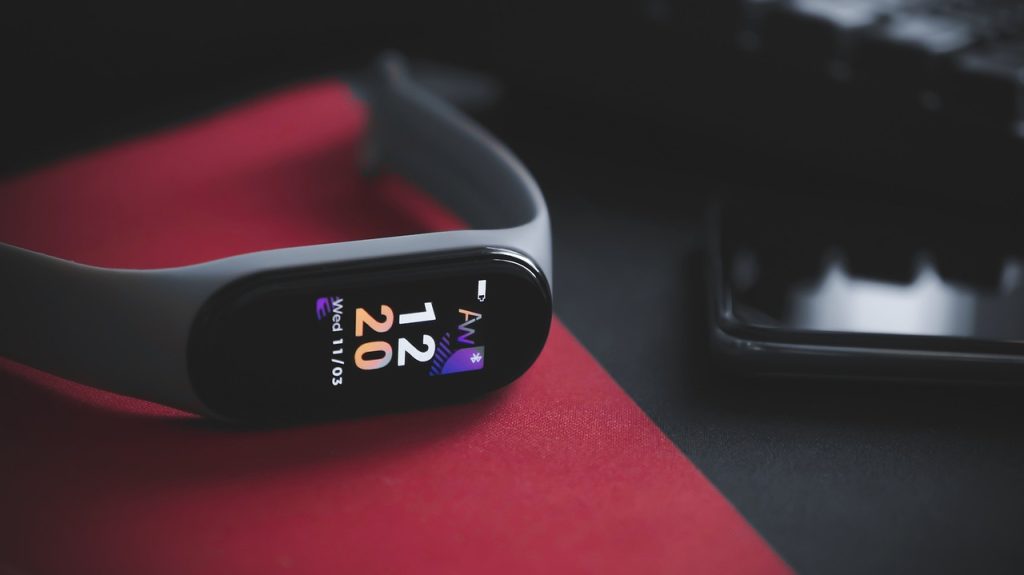Fitness trackers have become a must-have gadget for just about everyone these days. Whether you’re an athlete training for a marathon or someone trying to increase your step count while working at a desk, these little devices are everywhere. They’ve come a long way too, now tracking everything from how many stairs you climb to how well you’re sleeping. But with all the hype around them, it’s worth asking: Are fitness trackers really helping us hit our goals, or are they just adding extra stress and distractions?
In this post, we’ll break down the pros and cons of fitness trackers and take a look at how they might actually be affecting your fitness journey.
Three Ways Fitness Trackers Help
First, let’s look into the obvious: how fitness trackers help us reach our goals.
#1: Motivation and Accountability
The biggest perk of fitness trackers is the motivation they provide. Seeing your steps, calories burned, and active minutes can give you the extra push you need to stay on track. Sometimes, just having the watch on your wrist is a reminder of your goals.
If wearing the device isn’t enough to keep you motivated, many trackers also have built-in games and goal-setting features that might do the trick. These fun, interactive features can give you that sense of achievement when you hit a milestone, turning your fitness routine into a more exciting challenge.
Plus, wearing your tracker can help keep you accountable. If you need an extra boost, you can even share your progress with friends or family to help keep each other motivated and on track.
#2: Health Insights and Progress Monitoring
Fitness trackers offer valuable data that goes beyond just tracking physical activity. Many devices also measure heart rate, sleep patterns, and stress levels. By consistently monitoring these metrics, you can paint a clear picture of your overall health and see how your body is responding to exercise. This information can help you make informed decisions about adjustments to your routine, ensuring that you’re always moving toward better health.
#3: Personalized Goal Setting
Whether you’re aiming for 10,000 steps a day or working to improve your running time, fitness trackers can help you stay focused and engaged. Many trackers offer rewards, badges, and progress streaks, which make hitting your fitness milestones feel more rewarding and fun. These little visual cues can give you a boost of motivation and make you feel accomplished every time you reach a goal.
Three Ways Fitness Trackers Hurt
Now, let’s consider the lesser-known side of fitness trackers: how they hold us back from our goals.
#1: Ignoring Intuition and Body Signals
Fitness trackers can encourage you to push yourself to meet daily goals, but this sometimes comes at the expense of ignoring your body. If you’re feeling fatigued or sore, but your tracker says you’re only a few steps away from your goal, you might feel compelled to keep going. This can lead to overexertion or injury. It’s essential to find a balance between your fitness goals and your body’s natural signals, so you can rest when needed and not push yourself too hard.
#2: Accuracy Concerns
While fitness trackers can provide valuable data, they’re not always 100% accurate. They’re typically considered highly accurate for things like step count, distance covered, and even heart rate. However, according to Stanford Medicine, they are far from accurate when it comes to counting calories burned. If you’re relying too heavily on your fitness tracker while planning your workouts, the inaccuracies can make it more difficult to reach your goals.
#3: Pressure to Perform
Many users report feeling pressure to constantly perform to meet daily goals or reach certain targets. This can be especially true for people who track multiple metrics, such as steps, calories, and sleep, all at once. This pressure to “always be on” can lead to burnout and stress, as users feel like they need to be in motion constantly. Remember: fitness should be about balance. They shouldn’t make you feel pressured to constantly achieve, or detract from the overall enjoyment of staying active.
Finding the Right Balance
So, are fitness trackers helping or hurting? The truth is, it depends on how you use them. When used mindfully, fitness trackers can be an excellent tool to motivate, monitor progress, and enhance your fitness routine. However, it’s important to avoid letting the data take over your entire fitness journey.
Here are some tips for striking a healthy balance:
- Use Data as a Guide: Don’t let the numbers dictate your fitness decisions. Use your tracker to monitor trends and progress, but also remember to listen to your body. For example, if you wake up tired, take a rest day, even if your tracker says otherwise.
- Don’t Obsess Over Perfection: Fitness is a journey, not a sprint. Missing one milestone isn’t going to lead to failure. Focus on consistency over perfection. As long as you keep showing up, you will continue to make progress toward your goals.
- Embrace Rest: Rest days are essential for everyone. Don’t let your fitness tracker push you into working out every single day just so the numbers align with your goals. Recovery is just as important as training.
- Trust Your Intuition: Fitness trackers should complement, not replace, your body’s natural cues. If you’re uncomfortable, sore, or tired, it’s okay to skip a day or adjust your plan, even if the tracker shows you’re short of your goal.
In short, fitness trackers can be helpful tools for staying motivated and on track, but they’re not the end-all-be-all of the fitness world. When used thoughtfully, they can provide valuable insights into your health and progress, but when overused or relied upon too heavily, they can add unnecessary pressure and distract from the true enjoyment of fitness.
If you plan to use a fitness tracker in your training program, remember the “helps” and “hurts” of this article. Use the metrics that help you reach your goals, and ignore the ones that have the potential to bring you toward burnout.






